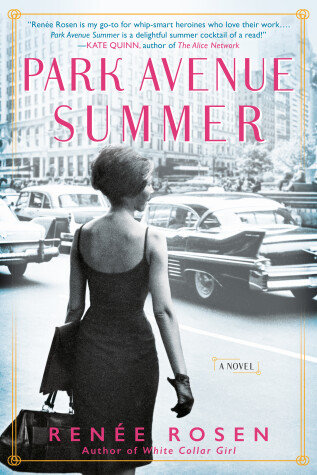
Briana @ Pages Unbound
Written on Feb 18, 2019
My personal issue with the main tension of the book being "Will the new, sexy magazine succeed?" is that I didn't really care either way. Rosen does a fantastic job of portraying Helen as the underdog fighting an entire executive board, even an entire industry to launch a "modern" magazine for "her girls" that will touch on topics that are rather taboo. When readers see how far people (mostly men) go to sabotage her, her career, and the magazine (which Hearst actually wants to fold, not revive, as they stated when they hired Gurley Brown), they won't be able to help rooting for her. However, beyond the "I like when underdogs win" feeling, I wasn't invested in either Gurley Brown or her vision.
Alice talks about Gurley Brown as if she's a force of nature, strong-willed and able to get her way even when people don't want to give it to her. However, those moment are represented rarely in the book. Instead we see her crying (fair, considering what people are doing to her), calling other female employees things like "pussycat" (which seems the opposite of empowering), and, worst of all, frequently calling her husband to bail her out. She got the job through her husband's influence, then she calls him every time something goes wrong. She leaves the office to spend time with him so he can calm her down. He is at every restaurant she hosts an important meeting at, ready to bail her out. He writes parts of the magazine and solves her problems for her. There's nothing wrong with relying on a spouse for support, but I don't know how much Gurley Brown was a strong, insightful woman with a vision. vs. a woman with a powerful, confident husband who did half her work for her.
I also balked at really rooting for the vision of the magazine. Gurley Brown talks a lot about the modern, career-oriented woman and how she wants to help them (ok, "her girls") succeed, but none of the stories she pitches are ever about careers or general empowerment. She tells Hearst executives that she's going to write about how to touch a woman's breasts, how to best masturbate, how to have an affair with a married man, etc. Every other word out of her mouth was about having sex and sexual pleasure. Being sex positive is one thing, but I could kind of see why the other magazine employees thought she was crazy and incredibly vulgar. She seems more sex-obsessed than interested in actual female empowerment.
The fact I didn't personally like Helen Gurley Brown or her vision for Cosmopolitan doesn't mean the book was bad, of course. I don't need to find characters likable or relatable. However, I do think the book struggled with the balance of focusing on Gurley Brown vs. focusing on the actual protagonist. Alice herself is, frankly, a bit dull. She gets all of her big breaks from nepotism, which is irritating, but, worse than that, she's a bit dull. Things seem to happen to her or at her, rather than because she herself took any action. If she weren't working for Gurley Brown and getting dragged into things bigger than herself because of luck and personal connections, she'd be incredibly uninteresting.
So, as a story, I think Park Avenue Summer is a bit dry. As an account of an interesting period in the magazine industry and the history of Cosmopolitan in particular, it's worth a read if you don't know much about this topic.
